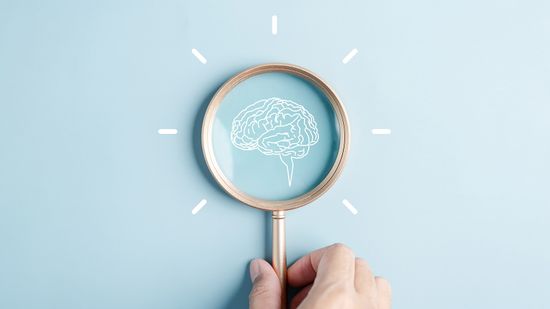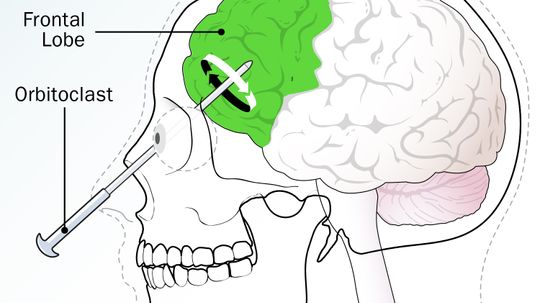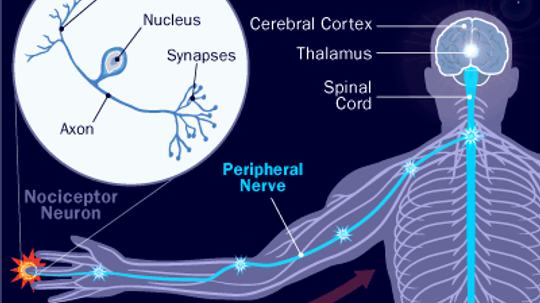Inside the Mind
What are dreams really made of? Are humans the smartest animal? What causes schizophrenia? Travel inside the mind and find out how the human brain works.

Is He Faithful? How to Identify Signs of Cheating in a Relationship

Why the Little Albert Experiment Could Never Happen Today

Milgram Shock Experiment: A Vital Lesson in Social Psychology

9 Types of Intelligence: The Many Ways to Expand Your Mind

Phineas Gage and the Birth of Modern Neuroscience

Call of the Void: A Counterintuitive Form of Self-preservation
Learn More / Page 5
Traditional psychology has proven effective in studying and treating mental illness. However, some in the field want to study what makes patients happy instead of what makes them miserable.
By Josh Clark
Exercise, hot peppers, sex: All of these things are said to give you an endorphin rush. What's the science behind this chemical high -- and how do you keep it going?
By Tom Scheve
A man in Cornwall, England, went 11 consecutive days without a wink of sleep. Find out how he did it, why he did it and why you shouldn't give it a try.
Advertisement
Kanye West says he says sees music in color. Other people can hear words that make them taste a particular flavor, or they actually feel another person's pain. Welcome to the world of the synesthete. It's a stimulating one.
Nothing beats watching a blockbuster on the big screen, but today's home theater systems do an impressive job bringing that experience into your home. In this article, we'll explain how the components of a home theater system re-create the sounds and
So you're at a family dinner, and your uncle stands up and dramatically announces that he has a brain tumor. How does he know? Because he researched his frequent headaches on the Internet.
Your little brother might think it's funny to put a rubber snake in your pocket or jump out from a closet in a dark hallway, but your heart rate might disagree. Is it possible to be scared out of both your wits and your life?
Advertisement
E=mc2. The theory of relativity. An understanding of the speed of light. These ideas all came from the brain of one man: Albert Einstein. But what happened to his brain after he died?
It's safe to say that no one particularly wants an ice pick through the eye socket. And yet, for years, people who were mentally ill or merely "difficult" had parts of their brains removed this way. The natural question: Why?
Religion is one of the three things you're never supposed to talk about if you don't want your dinner party to turn into a food fight. But what about looking at religion through the lens of science instead of faith? Is there a connection between our gray matters and pray matters?
We've all felt fury wash over us. Whether it's the guy who blurts the score to the game you TiVo'ed or the woman who lets the door slam in your face, anger is universal. You might as well learn how it works.
Advertisement
Everyone cries. For some it's an emotional response, while others just shed tears when chopping onions. Are tears a way for us to cleanse our bodies?
By Alia Hoyt
We've all heard of a "sixth sense" and extra-sensory perception. So how many ways can we actually sense the world around us?
Every animal sleeps -- some more than others -- but why they do it is a mystery to scientists. Is sleep more than just beauty rest? Could skimping on it kill you? And how much do you really need?
Addictions to substances such as drugs and alcohol have ruined the lives of people all over the world. Read about current views and ideas on addiction.
By Josh Clark & Sascha Bos
Advertisement
Antidepressants are the first line of treatment for depression. Sales of antidepressants total $50 billion annually, making this class of drugs one of the leading prescription medications. But are they effective?
Alien hand syndrome sounds like something from a B-grade horror movie, but it's a real condition. You could be completely at the mercy of your own renegade hand -- it could keep your other hand from functioning, punch you or even choke you.
You might think that not being able to feel pain would be a blessing. No tears, no painkillers, no lingering aches. But really, not being able to feel pain is dangerous.
You've just touched a hot stove -- and probably felt an immediate sharp pain, then a dull ache. How do we sense pain, and why does it eventually go away?
Advertisement
That man dressed in animal skins and running around Jerusalem trying to baptize people isn't alone. Tourists in Jerusalem sometimes suffer from a strange conviction that they are Biblical figures. Are they mentally ill or is there more to it?
Sleepwalking is an intriguing phenomenon. How can a person be unconscious but still coordinate his or her limbs? And how do we know when we're really awake?
Alcoholism can be difficult to spot. Learn the difference between heavy drinking and alcoholism, how alcohol affects the body, what factors may lead to alcoholism and what treatments are available for this addiction.
What exactly is fear? In this article, we'll examine the psychological and physical properties of fear, find out what causes a fear response and look at some ways you can defeat it.
By Julia Layton
Advertisement
Dreams combine verbal, visual and emotional stimuli into mystifying storylines. Should we bother to interpret them? Are they random brain impulses, or do they offer insight into our waking lives?
The more you know about your memory, the better you'll understand how you can improve it. Get details on how your memory works and how aging affects your ability to remember.
























